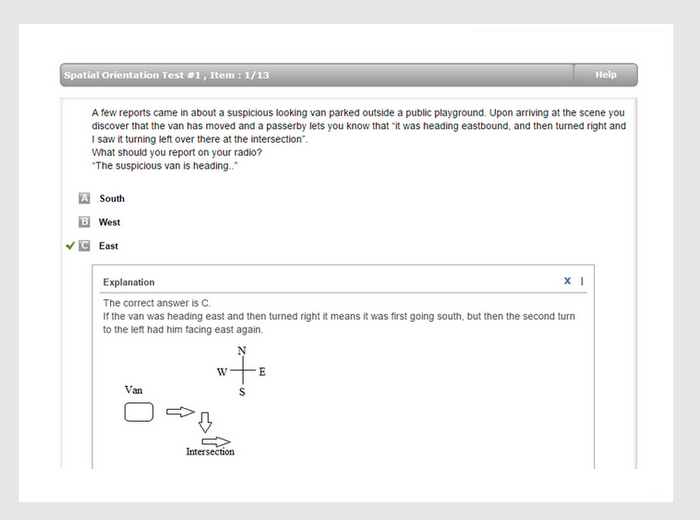Dispatcher Prep Guide
The 911 dispatcher oral interview is a highly structured interview designed to measure your background, motivation, professional demeanor, decision making, problem solving, interpersonal skills, and verbal communication skills. The three member board is comprised of high ranking law enforcement personnel who will evaluate you in several areas. That’s why before sitting for your interview, it’s a good idea to familiarize yourself with the procedure by looking over a. Things To Know: The dispatcher oral board is designed to test the suitability of a candidate for the position of a police dispatcher. All candidates are asked the same set of structured questions and the questions are open-ended to allow the candidate to express his/her individual view more thoroughly than a multiple-choice question would permit.
May 22, 2018 - Frequently Asked Questions Dispatcher Applicant Entry-Level Test. Entry-Level Dispatcher Selection Test Battery Examinee Guide (pdf).

Answers are evaluated by a panel of three with a scoring range of “Does not meet minimum competency” to “Excellent.” This handout contains questions that are commonly encountered in many police oral interviews. The questions do require a great deal of thought about yourself and why you want to become a public safety dispatcher with that particular agency.
Knowing what to expect in an may help you overcome some of your nervousness. Remember that a little nervousness is to be expected; the key is to control it. Helpful Hints to Remember for Your Next Police Dispatcher Job Interview. Dress appropriately (i.e., shoes polished, clothes clean, hair and nails clean). Do not wear something that is too tight or uncomfortable. Introduce yourself confidently with a firm handshake. Show appreciation for the interview.
After the interview is over, thank the panel for their time. Be on time for your appointment. When asked a question by the oral board, answer the question in sufficient detail so the oral board can effectively evaluate your knowledge of that particular subject. Where possible, use examples to demonstrate your experience. Remember to emphasize your particular experience and education as it relates to the position for which your are testing.
Do Not’s. DO NOT BE LATE!. Do not smoke.
Do not wear sunglasses or a hat during your interview. Do not chew gum. Do not bring a drink with you (i.e.
Coffee or coke). Do not slouch. Do not swear or use inappropriate language. Do not bring a friend or family member with you to your interview.
Preppy Guide
Do not downgrade previous employer(s). Sample Questions Usually Encountered in a911 Dispatcher Oral Board Interview. Why do you want to become a police dispatcher with (place your agency here)?. How have you prepared for this position?. Tell us about your experience and training as it relates to the position of a law enforcement recruits. What are your qualifications?. What do you consider to be your greatest assets (strengths)?.
What do you consider to be your greatest liabilities (weaknesses)?. What do you consider to be your most outstanding trait?. How would you rate your ability to get along with others? What is the basis for this rating?. What experience do you have as part of a team effort?.

Why did you choose a career in law enforcement?. What motivates you to put forth your greatest effort?. How would you describe your work ethic?.
How has your education/training prepared you for a career in law enforcement?. What two or three accomplishments have given you the most satisfaction and why?. In what kind of work environment are you most comfortable?. How would you rate your ability to work under pressure?
What is the basis for this rating?. What two or three things are most important to you in your present job? In conclusion: You can expect several scenario-type questions that are designed to measure your reactions to certain situations. Generally, these questions have no clear-cut right or wrong answers. Instead, the raters will be looking at your decision making ability and your justifications for your actions. The key to being successful in these questions is to just be yourself.
Answer the questions the way you would actually handle the situations. The raters DO NOT expect you to have any prior law enforcement experience to answer these questions. They DO expect you to approach them logically by applying common sense. Typically, the oral board is concluded with a blanket question asking if there is anything you would like to add. It is generally worded like: “Is there anything you would like to add that will assist us in making our rating?” Remember, this is a question that you should have a well thought-out answer for.
Take this opportunity to “sell yourself.” The scores obtained on the written test and the oral board are weighted together to determine your placement on the resulting eligibility list. Final Thoughts: If you don’t want to spend too much money on those over-priced Interview Courses, then at the very least, go and review a for law enforcement applicants.